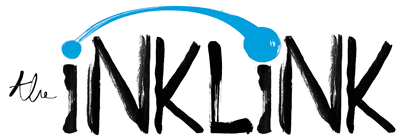Guidance on Basic Psychosocial Skills
The Inter-Agency Standing Committee
Created by the United Nations General Assembly in 1991, the Inter-Agency Standing Committee (IASC) is the longest-standing and highest-level humanitarian coordination forum of the United Nations system. No fewer than 57 international organizations are represented, including UNICEF, WHO and UNHCR. The agency is tasked with "ensuring the coherence of preparedness and response efforts, formulating policies and agreeing priorities for enhanced humanitarian action".
The COVID-19 era
A need has been identified to support essential workers responding to COVID-19. Whether they are professionals in health, distribution, protection, transport, etc., these relief providers have an important job to play in terms of mental health and psychosocial support.
The support we have created helps to develop their skills in this area, and to adapt the right gestures and postures to protect and reassure in the course of their work.
An illustrated guide to methodology
To help people understand and remember basic psychosocial support attitudes, an illustrated booklet was created. Our health expert selected the key data and made them accessible. This work on content enabled us to prioritize the information and organize the presentation.
The document is the result of several consultations between the 57 member organizations and the technical working teams in 22 humanitarian emergencies. It was then tested with around 200 COVID-19 survivors in 24 countries.


Espé, an artist addressing international issues
To illustrate this quickly and effectively, we delegated the task to Espé, who has been part of our association since its beginning, and knows how to adapt to complex subjects. His colorful drawings and dynamic art were perfectly suited to the important mental health and psychosocial support information to be conveyed.
Drawing representations
The main challenge in the discussions between the organization, our association and the artist was to agree on illustrations that could be understood by an international audience. Together, we chose the representations of jobs and places best suited to cultural differences. The aim, of course, was to ensure that as many independent readers as possible could grasp the essential information. Quite a challenge when you're addressing a hundred different countries!
Distributing the illustrated booklet
Initially, the 20-page digital guide will be available online under creative commons, distributed via member organizations and printed locally in each region. It has been translated into the six official WHO languages: Arabic, Chinese, English, Russian, French and Spanish and into many others.
We've worked to ensure that this guide helps to orient responders in different countries and in different sectors, on how to integrate psychosocial support into their day-to-day COVID-19 responses, and how to make a difference to the well-being of the people they communicate with during the COVID-19 pandemic.


You can read and download the guide here.
©IASC, 2020. This publication was published under the Creative Commons Attribution-NonCommercial- ShareAlike 3.0 IGO licence (CC BY-NC-SA 3.0 IGO; https://creativecommons.org/licenses/by-nc-sa/3.0/ igo). Under the terms of this licence, you may reproduce, translate and adapt this work for non-commercial purposes, provided the work is appropriately cited.





















